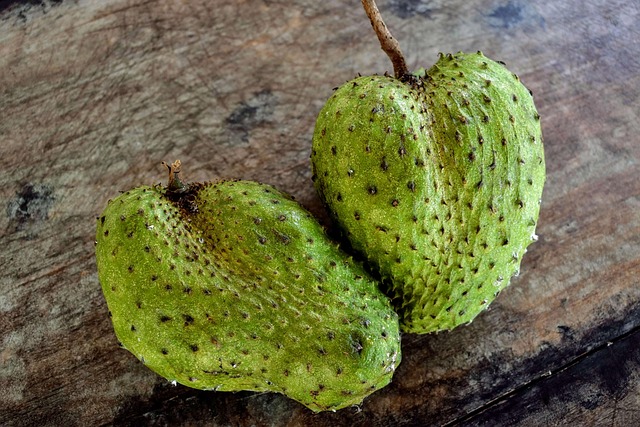Sustainability is more than just a buzzword and we are looking for ways to harmonize agricultural practices with human health. Natural supplements have become a game changer offering benefits for both sustainable farming and our well being. They are not only increasing crop yields but also the nutritional value of the food we eat.
By incorporating natural supplements in agriculture we are reducing dependence on synthetic chemicals and creating healthier ecosystems. These supplements often derived from organic sources play a crucial role in enriching soil health, boosting plant resilience and sustainable farming practices. For our health they provide essential nutrients and reduce exposure to harmful residues. Let’s see how these powerful allies are shaping a healthier and more sustainable future.
What are Natural Supplements
Natural supplements derived from organic and plant based sources are eco-friendly alternatives to synthetic chemicals. They play a vital role in promoting sustainable agriculture and human and environmental health.
Natural supplements are products made from organic materials like minerals, microbes and botanical extracts. In agriculture they include bio-fertilizers, microbial inoculants and natural soil enhancers that improve soil quality and crop productivity. For human health they include vitamins, minerals and herbal components that boost immunity and overall well being. Unlike synthetic alternatives natural supplements minimize environmental impacts due to their biodegradable nature. Their multi functional nature aligns with sustainable practices by providing nutrients for plants and humans without depleting natural resources.
Key Benefits for Agriculture and Health
Natural supplements improve soil health by promoting microbial diversity and increasing nutrient availability which makes plants stronger against pests and diseases. For agriculture biofertilizers and organic amendments reduce the need for chemical inputs while maintaining soil fertility long term. For human health supplements like vitamins and plant based extracts boost energy levels, immunity and nutrient intake benefiting populations with specific deficiencies. By using such products we create healthier ecosystems and support global sustainability efforts. Brands like Vita Mart often provide range of such products for both personal and agricultural use.
Natural Supplements for Sustainable Farming
Natural supplements drive sustainable farming by enriching soil, reducing chemical use and supporting biodiversity. These eco-friendly solutions create healthier environments and align with global sustainability goals.
Soil Health
Natural supplements improve soil health by replenishing essential nutrients and beneficial microorganisms. Bio-fertilizers and microbial inoculants from organic sources boost microbe activity, nutrient absorption and soil fertility. Humic acid and seaweed extracts supplements help with soil structure, water retention and root growth. With healthier soil crops are more resilient to stress and pests. By using natural solutions we create long term soil vitality for sustainable farming.
Reducing Chemical Fertilizers
Natural supplements replace synthetic fertilizers by providing eco-friendly nutrient sources for plants. Bio-based fertilizers, compost teas and mineral rich soil enhancers reduce environmental footprint of conventional farming. Nitrogen fixing bacteria in supplements for example naturally supply nutrients, reducing synthetic nitrogen use. Over time less chemical input means less soil contamination and cleaner waterways.
Biodiversity
Natural supplements promote biodiversity by preserving soil ecosystems and diverse plant and animal life. Products like organic pest controls and microbial inoculants create habitats for beneficial organisms like pollinators and soil fauna. More biodiversity reduces monoculture risks and maintains ecological balance. By using solutions farmers create ecosystem resilience, a stable and diverse farming environment.
Natural Supplements for Human Health

Natural supplements support human health by boosting nutrition, immunity and reducing chronic disease risk. These supplements from brands like VitaMart contribute to sustainable well being by providing naturally sourced nutrients.
Nutritional Intake
Natural supplements fill dietary gaps with essential vitamins, minerals and phytonutrients. They provide critical components like vitamin D, iron and omega 3 fatty acids that may be lacking in our diets. For example plant based protein powders and whole food derived multivitamins support balanced nutrition especially for those with restricted diets or nutrient deficiencies. These products ensure the body gets enough nutrients for energy production, cellular function and overall vitality. By incorporating supplements in our daily routine we can support physical and mental health. Supplements help boost immunity through natural bioactive compounds like antioxidants and peptides. Ingredients like echinacea, elderberry and zinc support the immune system to fight off infections and colds. Herbal supplements and probiotics support gut health which is linked to immune function. Products from trusted brands often combine these ingredients into effective formulas to fight seasonal illnesses. By using immunity boosting natural supplements we can stay healthy all year round.
Reduce Chronic Disease Risk
Certain natural supplements reduce chronic disease risk by addressing underlying factors like inflammation and oxidative stress. Turmeric with curcumin, green tea extracts and omega 3 fatty acids improve heart health by reducing bad cholesterol and promoting blood circulation. Supplements with vitamin C, selenium and resveratrol combat free radicals and prevent cellular damage tied to diabetes and cancer.
Agriculture and Human Health
Sustainable farming and natural supplements create a powerful connection between farming practices and human health. By improving soil and crop nutrition, these methods support both environmental and personal well-being.
How Sustainable Farming Affects Food Quality
Sustainable farming practices improve food quality by focusing on soil health and reducing stress. Nutrient dense soil yields crops with higher levels of vitamins, minerals and phytonutrients which directly benefit human nutrition. For example biofertilizers and seaweed extracts provide plants with balanced nutrition and vitality.
Less synthetic chemicals means no harmful residues in crops. Clean cultivation methods also preserves natural compounds in produce and enhance flavor and nutrient density.
Soil Health and Human Wellbeing
Healthy soil ecosystems directly impact agricultural output and by extension human wellbeing. Microbial diversity in soil boosts crop productivity and nutrient rich foods for human health. For example crops grown in soil with microbial inoculants have higher levels of potassium and magnesium.
From human perspective nourishing soil means consistent food availability, reducing nutritional deficiencies in population. Sustainable practices like composting and crop rotation preserve soil vitality, minimalize degradation. When we use natural solutions it helps maintain soil fertility and access to healthier nutrient dense foods that support overall wellbeing.
Challenges and Opportunities
According to Harvard T.H. Chan School of Public Health embracing natural solutions can have long term benefits for both people and planet. Natural supplements play a key role in sustainable agriculture and health but their broader adoption faces challenges and opportunities. Addressing these barriers while leveraging science can get them into global practices.
Overcoming Cost and Accessibility BarriersCost and accessibility are major barriers to natural supplements especially for small scale farmers and underserved communities. Many eco friendly alternatives like biofertilizers and natural soil enhancers require higher upfront investment compared to synthetic chemicals. Farmers in developing regions don’t have the financial resources or distribution channels to access these products.
Subsidies or public private partnerships can make them more affordable. Investment in local production and education initiatives can enable communities to adopt supplements in farming and health practices and get cost effective sustainable outcomes.
Leveraging Scientific Research for Broader Adoption
Scientific advancements can strengthen the credibility and efficacy of natural supplements, encouraging broader adoption by stakeholders. Comprehensive studies, focusing on bio-fertilizers and botanicals, pave the way for optimizing their formulations and demonstrating their long-term benefits in both agriculture and health.
Collaboration among scientists, industries, and organizations can accelerate innovation and facilitate knowledge-sharing. Publishing trial results and establishing regulatory frameworks can build consumer trust and help standardize products for diverse applications. Integrating research findings into educational programs can promote understanding of how natural supplements improve productivity, health, and environmental sustainability, ensuring they play a central role in future practices.




